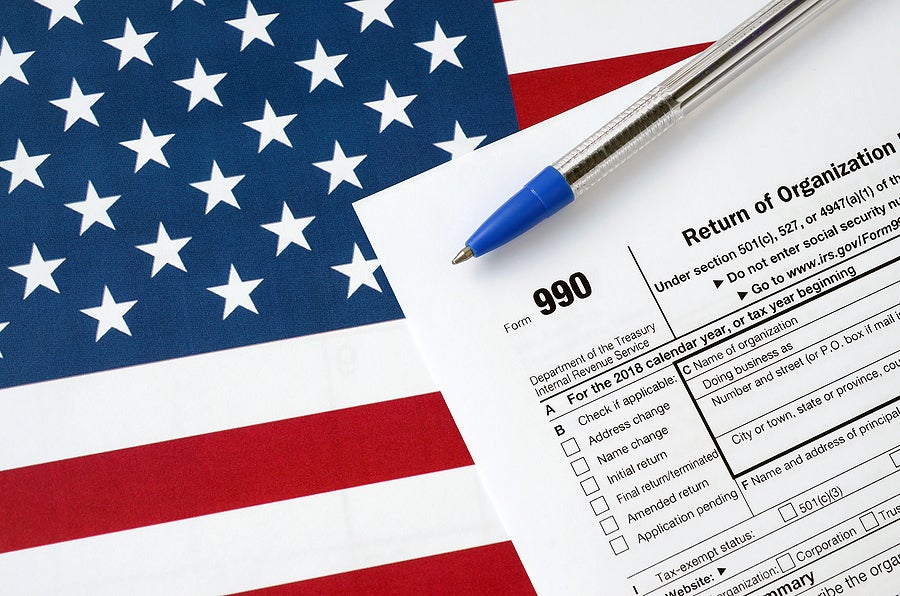
Every year, nonprofits must file a 990 series return to stay compliant with the IRS. If you have never filed a 990 series return, you may have a few questions about the form.
This article tells you everything you need to know about Form 990.
What is Form 990?
Form 990 is an annual information return that must be filed by tax-exempt organizations, nonexempt charitable trusts, and section 527 political organizations. It is used to report the information required by section 6033, such as financial information, activities, and organization members’ details to the IRS.
In addition to the form, your organization may need to file Schedules. Schedules are additional forms used to provide more details about the information that has been reported. There are 16 Schedules, all used for different purposes. For example, Schedule H is used by hospitals to report the activities, policies, and community benefits of the institution.
What are the variants of 990 series forms?
There are different variants of 990 forms available, and you can choose the applicable one based on your organization’s gross receipts, assets, and primary source of financial support.
- Organizations with gross receipts greater than or equal to $200,000 or total assets greater than or equal to $500,000 during their tax year qualify to file Form 990.
- For smaller organizations with gross receipts of $50,000 or less, a shortened version of Form 990, Form 990-N, can be filed. Organizations that qualify to file this version may elect to file the longer Form 990 instead.
- Organizations with gross receipts less than $200,000 and total assets less than $500,000 may file Form 990-EZ. This is another shortened version of the long Form 990.
- Form 990-PF is filed by certain private foundations to report their financial information, activities, and details about the foundation’s members. Private foundations must file Form 990-PF regardless of gross receipt totals.
- Form 990-T is actually a supporting form used by tax-exempt organizations that file Form 990, 990-EZ, or 990-N and have an income of $1,000 or more from unrelated business income.
How do I file Form 990?
As of 2019, the IRS requires all 990 series returns to be filed electronically.
All you need to do is choose your ideal e-filing provider. A few things to consider when choosing a provider include
- Are they IRS-certified?
- Do they support the filing of all required Schedules?
- Do they have a dependable support system?
- Is the application safe and secure?
- Do they include features to help me through my filing?
Can I get an extension to file Form 990?
Yes, you can get an extension for most 990 series forms. You must file an extension Form 8868 on or before your deadline to get an automatic 6-month extension on your form. The IRS does not require a reason for needing an extension.
Note: You cannot file for an extension for Form 990-N.
What happens if I fail to file Form 990?
If you fail to file your 990 forms before your deadline, the IRS will impose penalties. A penalty of $20 per day (for small organizations) or $105 per day (for larger organizations) will be imposed in the case of a late filing. The same penalty applies if you provide incorrect information. The penalty can reach up to $10,500 or 5% of the organization’s annual gross receipts.
If you fail to file a 990 return for three consecutive years, your organization will lose its tax-exempt status.
Note: There is no penalty for filing Form 990-N late.
Why Is Form 990 Mandatory?
990 series forms are important resources for both the IRS and the general public.
The IRS must make sure that tax-exempt organizations are managing their finances correctly and not abusing their status. The public also has some interest in the financial activity of tax-exempt organizations. It’s important that 990 forms are made public so that donors and stakeholders of the organization know what the organization has been up to.
Additionally, the return tells the public what activities and programs are offered by the organization. People may use this return to decide which causes they want to support or to research the board members of the organization.
Author: Olivia Massengale is a content writer for Tax990. She enjoys writing and creating informative content about tax-exempt e-filing.
2216 Views












